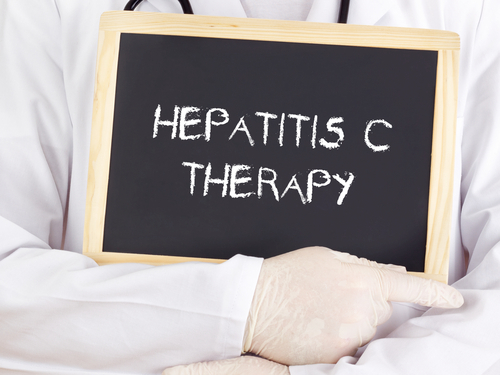 Two new studies on the hepatitis C virus entitled “Sofosbuvir and Ribavirin Prevent Recurrence of HCV Infection after Liver Transplantation: An Open-Label Study” and “Sofosbuvir and Ribavirin for Treatment of Recurrent Hepatitis C Virus Infection After Liver Transplantation” were published in Gastroenterology, respectively, by Dr. Michael P. Curry and Dr. Michael R. Charlton, respectively, from Beth Israel Deaconess Medical Center, Boston, MA, and Mayo Foundation, Rochester, MN, US, and colleagues. The trials were funded by Gilead Sciences, Inc.
Two new studies on the hepatitis C virus entitled “Sofosbuvir and Ribavirin Prevent Recurrence of HCV Infection after Liver Transplantation: An Open-Label Study” and “Sofosbuvir and Ribavirin for Treatment of Recurrent Hepatitis C Virus Infection After Liver Transplantation” were published in Gastroenterology, respectively, by Dr. Michael P. Curry and Dr. Michael R. Charlton, respectively, from Beth Israel Deaconess Medical Center, Boston, MA, and Mayo Foundation, Rochester, MN, US, and colleagues. The trials were funded by Gilead Sciences, Inc.
Hepatitis C virus (HCV) establishes a chronic infection in most infected individuals that will contribute to the development of more serious liver diseases such as cirrhosis and hepatocellular carcinoma. This infection can be transmitted through inadequate sterilization of medical equipment in some health-care settings, unscreened blood and blood products, and unsafe injection procedures. In the U.S., cases of HCV-related liver disease are the most frequent conditions necessitating liver transplantation, and reason for liver transplantation failure.
In the first trial, a Phase 2, open-label study, the authors found that a combination treatment of sofosbuvir and ribavirin for 48 weeks before liver transplant could prevent the reappearance of HCV in 70% of the patients that underwent liver transplantation. This data shows that interferon-free therapy of HCV-infected patients before liver transplantation can eliminate the virus in a considerable number of patients.
Dr. Curry said that patients infected with HCV after liver transplant generally show recurrence of hepatitis C virus infection. “Recurrent HCV infection follows an aggressive course. Given the burden of disease — the increased morbidity, mortality and costs — and the lack of a safe and broadly effective treatment to prevent recurrence of HCV infection, these results provide hope for patients in need.” added Dr. Curry, in the press release.
In the second trial, a prospective, multi-center and open-label pilot study, constituted by patients with persistent HCV infection after performing one or two liver transplantations, the patients were treated with an oral dose of sofosbuvir and ribavirin over 24 weeks. The authors observed a constant virologic response with no detectable virus in 70% of patients. These results were consistent to the ones obtained in clinical studies with similar doses and time periods of sofosbuvir and ribavirin in patients not submitted to transplantation.
“A well tolerated and effective treatment protocol for recurrence of HCV infection following liver transplantation is an important unmet clinical need,” said Dr. Charlton. “Our study demonstrates that patients with characteristics that have historically been difficult to cure with interferon-based regimens, including those with advanced disease, may benefit from this all-oral interferon-free therapy,” concluded Dr. Charlton.

